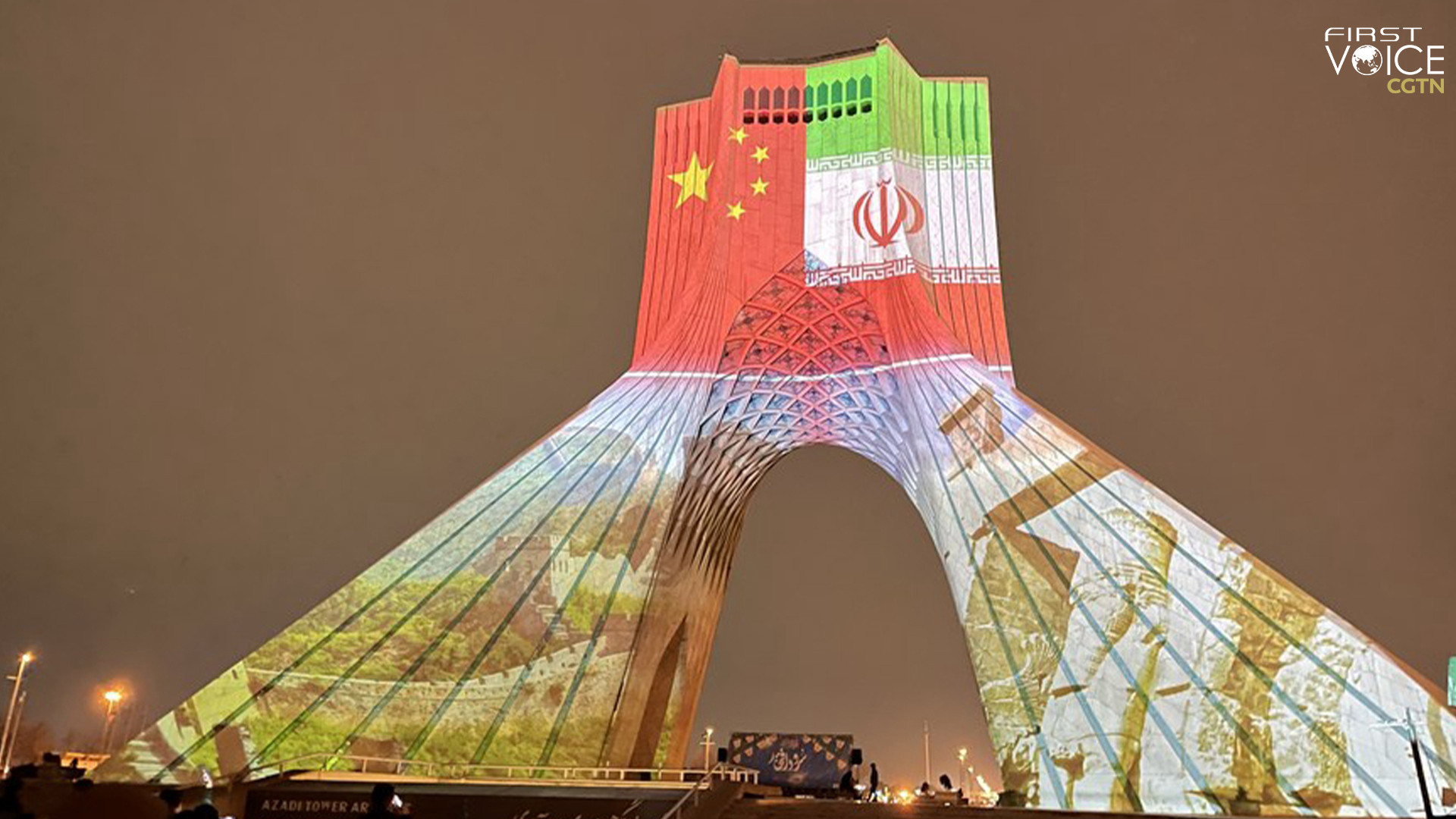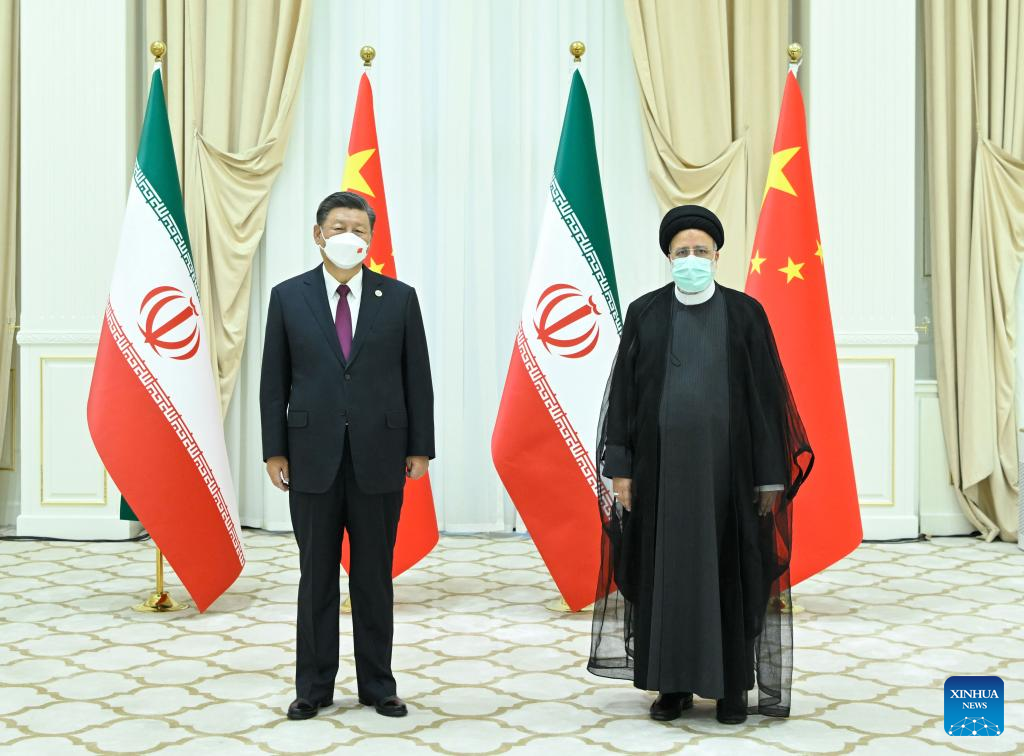
Editor's note: CGTN's First Voice provides instant commentary on breaking stories. The column clarifies emerging issues and better defines the news agenda, offering a Chinese perspective on the latest global events.
On Iran's relationship with China, Iranian President Ibrahim Raisi said the following when interviewed by CGTN in 2022, "We have a deep-rooted relation and a very old relation with China. It is a strategic relation. We have signed a 25-year agreement, a comprehensive agreement with China. And perhaps some are less than happy due to the fact that we have reached this agreement."
It very much encapsulates the main components of China-Iran relations – lots of history, very strategic and some people don't like it.
Here's what "some people don't like it" means. As President Raisi makes his first state visit to China from February 14 to 16, AP's report describes it as "two U.S. rivals seek further cooperation." "Both countries have had tense relations with the United States and have sought to project themselves as a counterweight to American power alongside Russia," the report stated.
Defining the trip as "two U.S. rivals" buddying-up is chasing the fad in the West as geopolitics carrying greater and greater weight in the Western political decision-making. The "us v.s. them" mentality is provocative and simplifies a complicated relationship to a single soundbite that can more easily be absorbed by the public.
But the fad is not necessarily the fact, and the fact is that the China-Iran relationship contains multitudes of aspects that don't get expressed by a simple "counterweight to American power."
In January 2022, China and Iran jointly announced the implementation of the 25-year comprehensive cooperation plan. Both sides agreed to strengthen cooperation in various fields including energy, infrastructure, production capacity, science and technology, and medical and health care. Cooperation in agriculture, fisheries, cybersecurity will be expanded. And they will promote tripartite cooperation, deepen people-to-people and cultural exchanges in education, film and personnel training.

Chinese President Xi Jinping meets with Iranian President Ebrahim Raisi at Forumlar Majmuasi Complex in Samarkand, Uzbekistan, Sept. 16, 2022. /Xinhua
Chinese President Xi Jinping meets with Iranian President Ebrahim Raisi at Forumlar Majmuasi Complex in Samarkand, Uzbekistan, Sept. 16, 2022. /Xinhua
China remained Iran's largest trading partner and export destination in 2022. In the first eight months of the year, China-Iran trade volume reached $11.16 billion, an increase of 19 percent from the same period the year before. Imports and exports by China to Iran have registered double-digit percentage growth.
And as Iran is expected to become a full member of the Shanghai Cooperation Organization this year, China and Iran would become closer partners in ensuring regional security matters.
Wang Jin, a Middle East expert from the Northwest University of China, said in an interview that developing closer relations with Iran is critical to China's plan for further development. It's critical to the Belt and Road Initiative's development and China's efforts to support a just and reasonable international order, according to Wang.
Is there a geopolitical element to the China-Iran relationship? Well yes there is. China and Iran are both victims of U.S.'s unilateral sanctions and its long-arm jurisdiction. And they are both the recipients of America's political whims that change policies abruptly. The Joint Comprehensive Plan of Action (AKA the Iran nuclear deal) suffered from America's withdrawal under the Donald Trump's administration only several years after it was finalized by his predecessor in the White House. And America's policy towards China shifted dramatically under President Trump as he and his party made China a scapegoat for America's own failures. The negative shift has continued on by the current U.S. administration.
As America becomes more reckless, those who seek stability and development have to stick together and find an alternative path that could create wealth and prosperity. China and Iran have been connected since the ancient times, and the two countries share a similar desire for development. The two sides are seeking ways that could benefit each other, and that's what both countries are aiming for with President Raisi's visit. The U.S. just provided greater incentives for the two countries to cooperate further.
(If you want to contribute and have specific expertise, please contact us at opinions@cgtn.com. Follow @thouse_opinions on Twitter to discover the latest commentaries in the CGTN Opinion Section.)